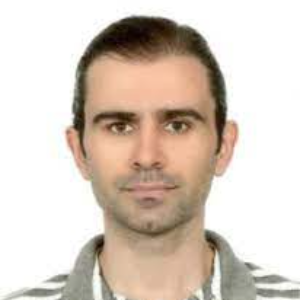Title: Preparation and characterization of STING agonists-delivering LNP systems for cancer treatment
Abstract:
Glioblastoma (GBM) is the most common brain tumour in adults that has poor prognosis and still considered incurable with a very short median survival after diagnosis. The stimulator of interferon genes (STING) in conjunction with cyclic GMP-AMP synthase (cGAMP) is a cytosolic DNA-sensing machinery which stimulates activation of type I interferons and other inflammatory cytokines. cGAS is a pattern recognition receptor that has affinity to viral or bacterial non-self DNA or cytosolic self-DNA derived from cancer cells. In addition, STING also acts as a receptor for bacteria-derived cyclic dinucleotides. Although the main function of cGAS-STING pathway is to protect the organism against pathogen attacks, irregularities in this pathway trigger inflammatory response, an underlying cause of many diseases.In the past several years, substances showing agonist activity on STING have become increasingly attractive for developing new treatment strategies against several cancer types including GBM. Of these, natural and synthetic cyclic dinucleotides and non-nucleic acid agonists have shown huge potential and entered preclinical and clinical studies. As with majority of therapeutic molecules, these also have some disadvantages such as low solubility, unspecific biodistribution, low blood brain barrier penetration and adverse effects related to excessive cytokine release upon systemic administration. The aim of this study was to prepare STING agonist-loaded lipid nanoparticles (LNPs) to be used as delivery systems in an in vivo GBM model.We prepared the LNP formulations by lyophilisation followed by rehydration and either freeze-thaw cycles or ultrasonication. A hydrophilic synthetic cyclic dinucleotide and a hydrophobic non-nucleotide STING agonist were loaded to these nanoparticles and characterized in terms of drug loading capacity and particle size. The toxicity of the nanoparticles was assessed on fibroblast (L929) and glioblastoma (GL261) cell lines. Cellular entry of the delivery systems was evaluated on GL261 cell lines. The cytokine stimulation activity was assessed on peripheral blood mononuclear cells and THP1 cell line.The probe sonication method allowed us to obtain LNPs below 250 nm. However, larger LNPs were obtained when we used the freeze-thaw method. The surface charge was modified by inclusion of a cationic lipid and LNPs with both positive and negative zeta potential were obtained. Drug entrapment efficiency was higher than 99% for the lipophilic drug, while for the hydrophilic drug the entrapment efficiency was below 40%. When the cytotoxic effect of the delivery system was analysed on fibroblast cells, no significant change was observed on cell viability. Higher cell entry was observed with the cationic LNPs. The candidate formulations performed comparable to the free drug molecules in terms of cytokine secretion in vitro. Further in vivo experiments are ongoing to test the efficacy of the selected formulation against GBM in orthotropic GBM mouse model.
Audience Take Away Notes :
- The role of STING agonists in cancer treatment
- The preparation of lipid nanoparticles of hydrophilic and lipophilic STING agonists
- The in vitro performance of the designed nanoparticles



